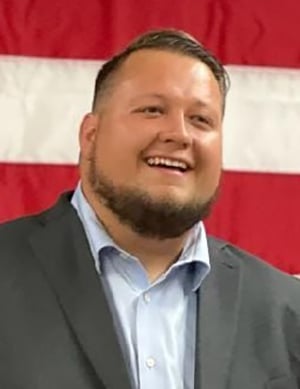By Rory Glynn
SmartHealthToday
The Food and Drug Administration issued its long-awaited first regulations on e-cigarettes in 2016. But controversy surrounding them hasn’t exactly vanished in a puff of smoke.
The widely expected move, announced over a year ago in May 2016, requires manufacturers of so-called Electronic Nicotine Delivery Systems, or ENDS – including e-cigarettes and also vaporizers, vape pens and hookah pens – to submit their products to governmental review. The FDA also banned sales of ENDS to minors and will require product packaging and advertising to carry a warning label that the product contains nicotine, and that nicotine is an addictive chemical.

Dr. D.P. Suresh, medical director, heart and vascular at St. Elizabeth Healthcare and an outspoken critic of e-cigarettes, eagerly anticipated pending FDA regulations. “This is not something that is safe,” he said. “This is something that is very harmful.”
E-cigarettes are battery-powered devices that give users nicotine (and other chemicals) in vapor instead of smoke; users call e-cigarette use “vaping.” There were more than 250 brands on the market in 2015, according to the National Institute on Drug Abuse, none subject to federal regulation.
“Use among young people has only continued to climb,” Dr. Suresh said.
Use of e-cigarettes increased 800 percent amongst teens between 2011 and 2014 with nearly 2.6 million high school and even middle-school students now vaping. In this same time frame, ad spending increased by 1,696 percent as marketers target teens with youth-friendly flavors like bubblegum, fruits, chocolate and latte.
Starting August 8, stores will be required to check identification of buyers 25 and under, with no one under 18 allowed to buy any tobacco product, including ENDS. Also prohibited are free samples, and vending-machine sales will be limited to places where minors aren’t permitted.
Absent federal regulations, there has been no way to measure what one product delivers as opposed to another. Mitch Zeller, director of the FDA’s Center for Tobacco Products, has likened the unregulated industry to the “wild, wild West.”

Over the next two years, any tobacco product manufactured after February 2007, which covers the overwhelming majority of the nascent ENDS industry, must submit products to FDA review of their ingredients and potential health risks.
But critics say this will be a costly burden for what has become a multi-billion dollar industry, and some wonder if it’s worthwhile. A group of seven international experts, writing in the journal (si) Addiction (ei) last month, wondered if perhaps e-cigarettes were getting a bad rap as compared with their notoriously harmful tobacco counterparts.
Suresh, who as president of the board of directors of the American Heart Association, Cincinnati division, has spearheaded a local effort for more awareness and regulation, said there’s no definitive evidence linking e-cigarettes to smoking cessation, or establishing the safety of e-cigarettes.
Rawhide reports teens run a 300 percent increased risk of turning to traditional cigarettes within 12 months of smoking an e-cigarette. Extended use of e-cigarettes may lead to lung damage resulting in problems such as bronchitis and asthma and, despite popular belief otherwise, nicotine addiction.
“They’re absolutely as harmful, if not worse,” Suresh said, citing the potential presence of additional harmful chemicals, like the carcinogen formaldehyde, in liquid and vapor. “The amount of nicotine you get is just as bad, if not worse.”
For more articles that help you live your life better, go to www.smarthealthtoday.com.
SmartHealthToday is a service of St. Elizabeth Healthcare.


















I am the general counsel to the Kentucky Smoke Free Association, the state’s e-vapor retail trade organization. This story certainly only presents one side of the argument. The e-vapor industry does not oppose regulation, and in fact believes that smart and reasonable regulation is necessary to ensure that bad manufacturing practices do not prevail. Millions of people worldwide have forever quit smoking because of the availability of e-vapor products. The British Royal College of Physicians (equivalent to our American Medical Association) has opined through extensive study that e-vapor products are at least 95% safer than cigarettes. The British Public Health Service (equivalent of our FDA) agrees, and has authorized physicians to prescribe e-vapor to patients wishing to stop smoking. The results in Britain have been extraordinary as the rate of smoking has dropped significantly over the past several years.
The sentiments expressed by the good doctor in the article are typical of the anti-tobacco crowd – – any product which comes from tobacco is verboten (might I remind people that the drug developed to fight the Ebola virus was derived from tobacco). People smoke for the nicotine but die from the tar and carcinogens resulting from the combustion of tobacco. E-vapor provides the nicotine with no combustion. To the anti-tobacco crowd, it boils down to a choice of quit or die and there is no room for
stepping people away from tobacco through harm-reduction/mitigation products not sold by the pharmaceutical companies. If Big Pharma had invented e-vapor products, they would be touted as the best product ever made.
It also boils down to money – – the real money for the pharmaceutical companies is not in the cure but in keeping people sick. E-vapor products have reduced smoke rates – – that is a fact. Reduced smoking means fewer people are likely to get lung cancer, heart disease, diabetes, COPD, etc. That simply cannot be allowed because it takes far too much money from the pockets of the pharma companies.